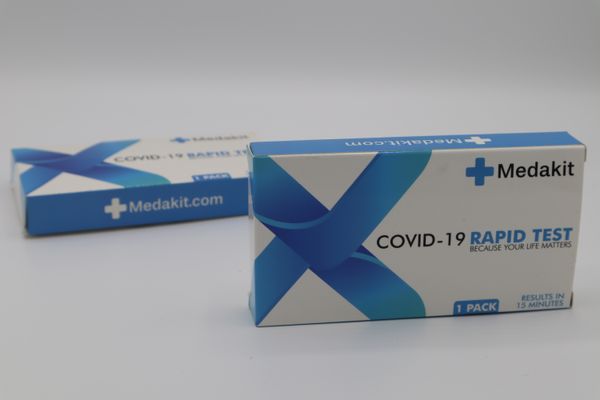At 1:48PM on Tuesday Sept. 3, Furman administrators announced that they were adjusting testing protocols and planned on testing “all on-campus students... and will require second- and third-year students to provide a negative test result before arriving on campus.” This represents a sharp break from Furman’s previous policy of only testing symptomatic students, which the University defended in its Health and Safety Guidelines: “results for screening tests reflect only a single point in time (24 hours), are not 100% accurate and can provide a false sense of security.”
Furman explained its decision to change policy in an email, saying “We are modifying our testing protocols in part because of concerns over the recent outbreak related to off-campus activities.” This is a clear reference to the unauthorized parties at the former Kappa Alpha house on Aug 21-22 that led to 29 confirmed cases among students as of Monday Aug. 31. Kappa Alpha has since been suspended for no less than four years by the administration.
The University also cited “the return of second- and third-year students” and the subsequent increase in campus density as a reason for the sudden change in policy. “Most importantly,” emphasized the University’s email, “we want to have more complete data so we can continue to adjust our plans based on the best information available.”
The announcement caught many students by surprise and has led to a sort of policy whiplash as students rush to adjust their plans. Many second- and third-year students have already booked hotels or flights to Greenville and are now scrambling to get tested before they move in. Junior Lindsay Diehl said, “I do think every student should be getting tested. However, this is a very late and unorganized decision that should have been thought about earlier.” Diehl, who lives nearly 12 hours from Furman has already booked a place to stay on her way down, so she must get tested quickly in order to get her results back before her intended departure. Diehl remarked, “This decision should have been made earlier, and before any students were allowed to move in.”
Sophomore Victoria Kalau, who is also waiting to return to campus, echoed Diehl’s sentiment, saying that “Furman should’ve had everyone get tested from the beginning when they made the decision to stagger the return to campus.” Kalau also agreed that while Furman is now making the right decision by requiring testing, it may be too late for students in certain areas, as some may not have access to rapid-test sites. Kalau added, “When Furman released the Paladin Promise, testing should’ve been listed as necessary for return to campus, they messed up and now they are having to fix it.”
Freshman Baxter Easley, who is already on campus, told The Paladin “While I am not happy about [the decision], I think testing is necessary based on the actions taken by particular groups within the student body that have violated the Paladin Promise and jeopardized the health and safety of the campus community.” Another freshman, Jace Gravitt, added “I mean it’s really just a minor inconvenience in the grand scheme of things. As long as this helps us stay on campus, I support it.”
In short, students seem generally supportive of the University’s decisions to begin testing but sharply critical of the way the University came to that decision. In particular, the timing of the decision presents difficult challenges to students at home who are now required to provide a negative test result before arriving on campus. More broadly, the abrupt policy change calls into question Furman’s initial approach to testing and begs the question: why now?
This is a developing story. The Paladin will continue to provide updates.
